The Ripple Effect
-News and Commentary-
Home of the Brave. Land of the Free. 100% Polarized.
- Home
- News and Commentary
- Home of the Brave. Land of the Free. 100% Polarized.
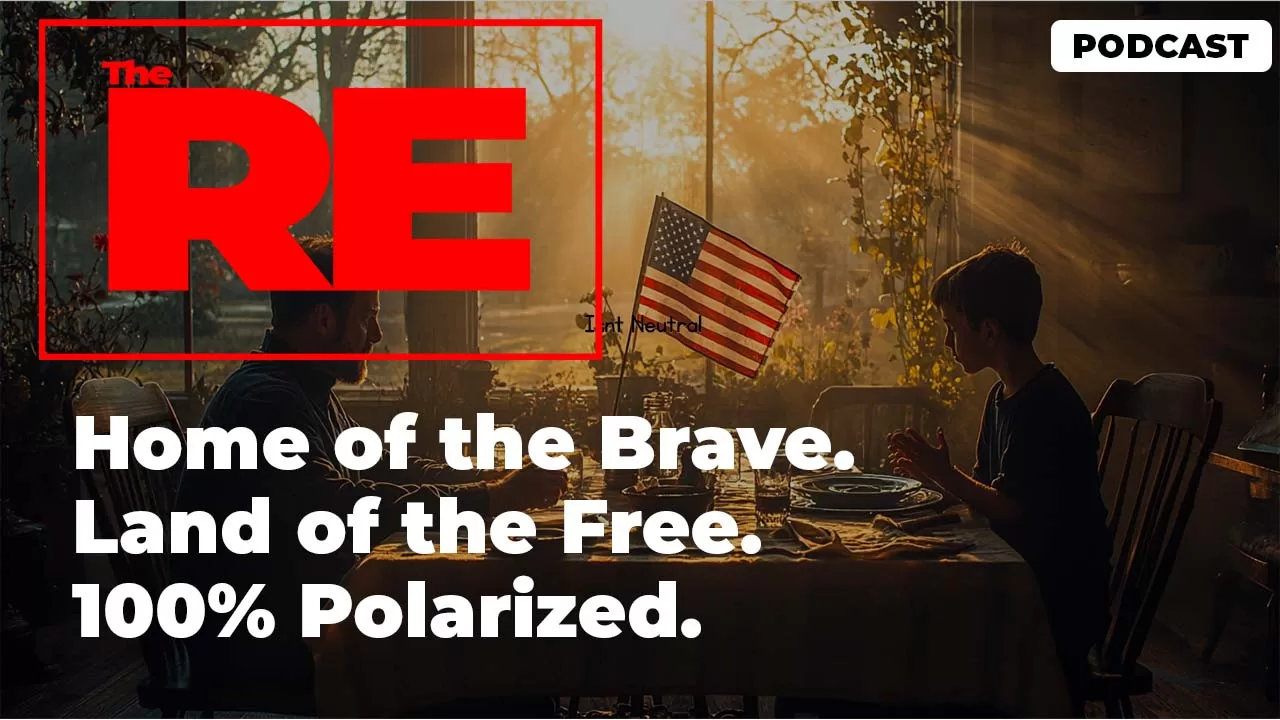
This is not breaking news. We don't report the news. We Unpack it. Explain it. And analyze what it means.
Click this button to add us to your home screen.
My father is a lifelong Democrat. Not a bandwagon type. Not a “vote blue no matter who” kind of guy. He’s built for it—military medals, academic degrees, a life of discipline and honor. He’s served this country in every way that counts: with blood, with brains, with a belief in the system itself. And to him, that belief still matters. Still holds weight. Still means something.
But his flaw? His moral compass is too damn pure.
He’s the last Boy Scout. Straight shooter. Believes in order, honor, and the idea that if you do good, good will follow. He raised me on that. Raised me to believe in fairness, in dignity, in playing by the rules. And for most of my life, I wanted to believe it too.
But I’ve seen too much.
So now I push back. I tell him, “That’s the lie they feed us to keep us in line.”
Because the truth? Good doesn’t always win. Liars win. Cheaters win. Bullies win because they don’t care about the consequences—and most good people do. That’s the edge. That’s the game. That’s the country.
He doesn’t want to believe that. He can’t. And that’s where his disappointment comes from—not just in politics, but in people. He gives, gives, and gives—always putting others first. And when they don’t reciprocate, when the world doesn’t reward his integrity, it hits him like a punch to the chest. Not because he’s weak. But because he still believes it should be different.
And when it comes to Republicans, that heartbreak shows up as disbelief.
Not hatred. Not name-calling. Just this quiet, stubborn refusal to understand how they see the world. Especially when it comes to Trump.
To him, Trump is the embodiment of everything wrong with America. A man with no honor, no humility, no real sense of public duty. To even entertain that kind of leadership feels like a betrayal—not just of Democratic values, but of American ones. He looks at Republicans and asks, “How can you stand behind this man?”
And I get that. I do.
But I also know people on the other side.
People I trust. People who love their families, work hard, live with principle—and they vote Republican. Not out of ignorance, but out of a different set of priorities. They care about taxes. They care about regulation. They care about gun rights, school choice, business freedom. And they’re not crazy for that.
In fact, if Trump wasn’t Trump—if the man wasn’t a liar, a cheater, and morally bankrupt—I might not have an issue.
Let me say that again: If he were anyone else, this would be a completely different conversation.
Take George W. Bush. I didn’t like his policies. I didn’t agree with the war, or how he handled Katrina, or a bunch of things in between. But I never questioned whether he believed in what he was doing. I never thought he was using the presidency to settle scores or protect himself from prosecution. I disagreed with Bush, but I didn’t distrust his soul.
That’s the difference.
I don’t believe Trump has a soul for this job.
I don’t think he believes in anything outside of himself.
And when I say this to the reasonable Republicans I know—the ones with some distance from the noise—they usually nod. They say things like, “I didn’t vote for Trump. I voted against the alternative.” Or, “I didn’t like Biden. I didn’t trust Kamala.” And I get that. That’s democracy. That’s honest conflict. That’s what this country was built to handle.
But then there’s the other group.
The die-hards. The defenders. The ones who say Trump is a good man, a man of faith, a man of the people.
That’s when it all breaks down.
Because that kind of loyalty—that blindness—it’s not political. It’s tribal. It’s cultish. And it’s no different than what I see in my father sometimes. That unshakeable belief in his side’s righteousness. That refusal to imagine the other side as fully human, fully nuanced, or even occasionally right.
And I’m over here in the middle. Arguing with both sides. Screaming into the void like: Maybe y’all are both wrong. Because I don’t need someone to agree with me.
I just need someone who isn’t faking it.
Someone who understands that leadership isn’t just about passing laws—it’s about setting tone. Holding the weight of the office. Being accountable. Owning your flaws instead of deflecting them. That’s not left or right. That’s human.
But right now, America isn’t asking for leaders. It’s asking for avatars.
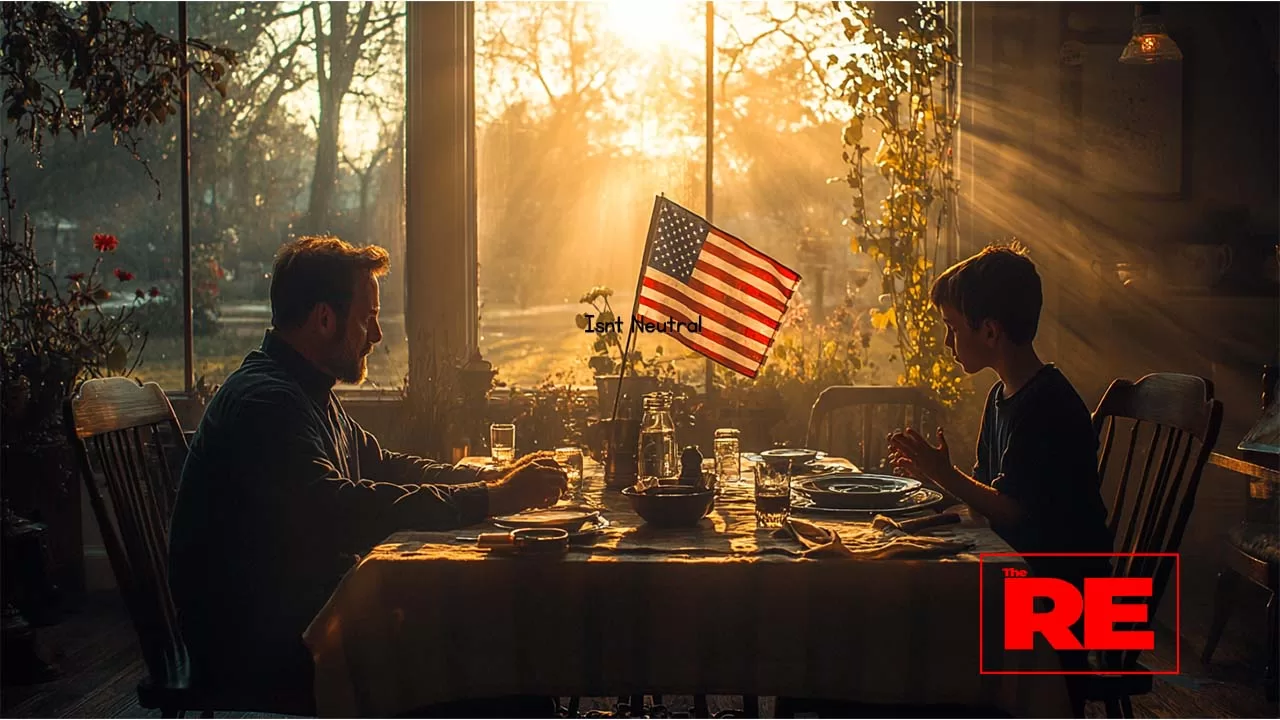
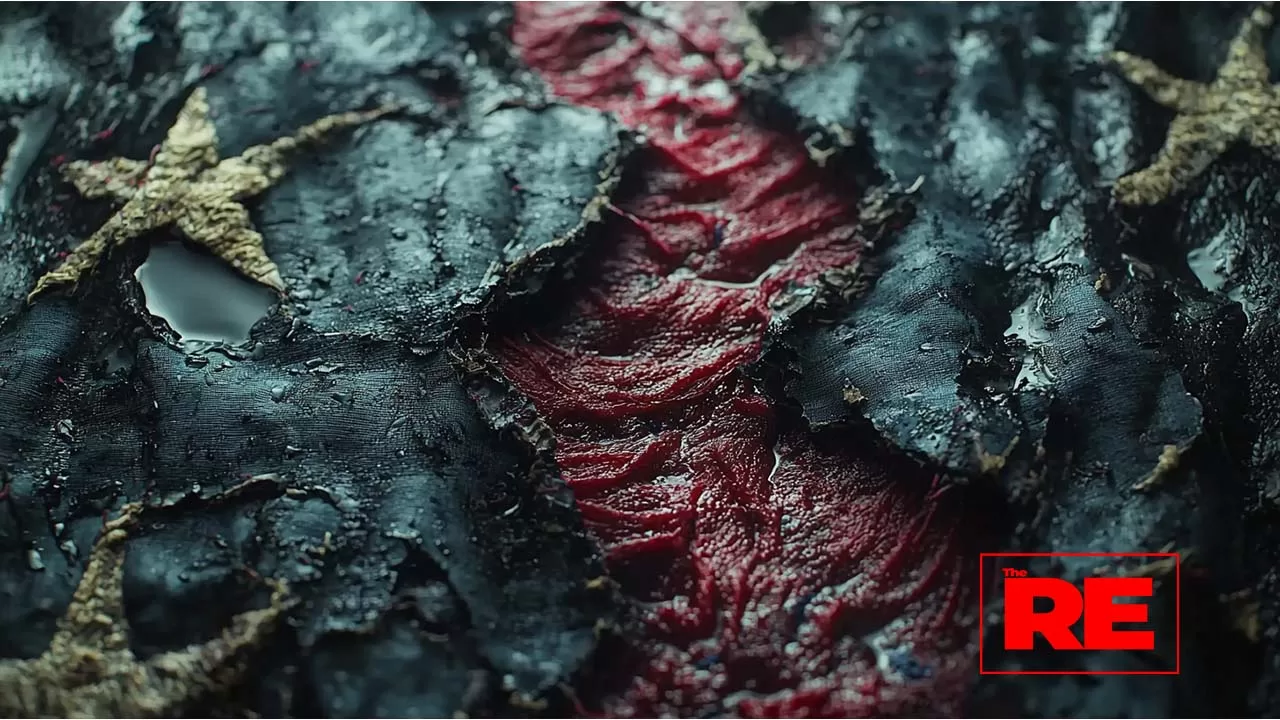
America’s divide isn’t just political—it’s psychological. Over the last twenty years, we’ve drifted from disagreement to complete moral separation. What we’re watching isn’t a debate between liberals and conservatives anymore. It’s a full-blown identity war, where each side is convinced they’re not just right—they’re righteous.
The language we use has changed. We don’t argue policy—we declare moral superiority. We don’t listen to nuance—we hunt for contradictions to discredit. For a country that claims to value freedom, we’ve become addicted to certainty. The right calls the left weak and godless. The left calls the right bigoted and brainwashed. But underneath that noise, something deeper is happening. We’ve stopped reflecting, and we’ve started performing—for our tribes, for our timelines, for our own sense of control in a country that feels like it’s spiraling.
Part of the problem is structural. In 2004, only 39% of Americans lived in what political scientists call “landslide counties”—areas where one political party dominates by over 20 points. By 2020, that number had climbed to over 58%. That means more than half the country now lives surrounded almost entirely by people who vote just like them. Our social bubbles are political ones, and those bubbles are shrinking. The more we stay inside them, the harder it becomes to even imagine someone on the other side having a valid point.
And when the only people we talk to think like us, we stop questioning ourselves. Instead of humility, we develop a sense of spiritual correctness—that our politics reflect our goodness. That our votes aren’t just strategic; they’re moral proof. But that mindset erodes everything democracy depends on. It kills honest dialogue. It turns doubt into betrayal. And it allows extremists on both sides to dominate the conversation, because they’re the ones willing to yell the loudest and bend the truth the farthest.
The rise of social media only accelerated this. Platforms that were supposed to connect us now reward outrage, not reflection. Algorithms push what’s controversial, not what’s constructive. You’re more likely to go viral for attacking someone than understanding them. So people perform. They curate outrage. They dunk, they drag, they “destroy” the other side with a quote or a meme—because likes feel like impact. But in reality, none of this is changing minds. It’s just deepening the trenches.
And here’s the truth most people don’t want to admit: you can be right about the facts and still wrong about how you carry yourself. You can hold the right position and still have no compassion. You can vote blue or red and still lack the ability to reflect, to admit you don’t have all the answers.
That’s why I always go back to this principle: in a democracy, you’re supposed to lose sometimes. That’s how the system works. You vote, someone wins, and if it’s not your guy, you organize and try again. I’ve never had a problem with a candidate enacting the platform they ran on—even if I didn’t agree with it. If it was Bush? I’d argue with his choices, sure. But I wouldn’t deny his right to govern. He won. That’s how it goes. The people made a choice.
But what we’re dealing with now is different. It’s not about losing to a different political vision. It’s about losing to someone who doesn’t respect the office, the truth, or the people who live under his policies. Trump didn’t just challenge Democratic ideals—he challenged the idea of shared reality. He lied about elections. He attacked the media. He openly praised dictators while undermining his own intelligence agencies. And yet, his base stuck with him. Not just politically, but spiritually. They didn’t just support his policies—they adopted his worldview. That’s not democracy. That’s dogma.
And the same thing happens on the left in different ways. When people on my side start canceling anyone who says the wrong thing or applying purity tests that no one can pass, it becomes clear: we’ve all got our blind spots. Both sides have built echo chambers that punish reflection and reward performance. Because in today’s America, admitting you’re wrong—or even that you’re uncertain—feels like weakness. And nobody wants to look weak in front of their team.
But the price for that kind of pride is high. While we argue about symbols and slogans, real issues keep getting worse. Healthcare costs are the highest in the developed world, and over 100 million Americans are saddled with medical debt. Wages haven’t kept up with inflation in over forty years. Housing is so expensive that entire generations are stuck renting forever. We’re still having debates over whether teachers deserve to be paid a living wage. Climate disasters are happening with increasing frequency and severity, and yet they barely make the news anymore unless someone dies.
And still—we scream at each other online like any of that noise is helping.
So where does that leave us?
It leaves us in a country where being “right” is more important than being kind. Where winning an argument feels more satisfying than fixing a problem. Where parties are more loyal to power than to the people who gave them that power in the first place.
The truth is, we can’t keep pretending this divide is just about policy. It’s not. It’s about identity. It’s about fear. It’s about pride. And until we start reflecting—truly reflecting—we’re not going to heal anything.
We don’t have to agree. But we do have to start asking better questions.
Not, “How do I beat the other side?”
But, “What am I missing?”
“What don’t I see?”
And maybe most importantly:
“What if I’m wrong?”
I don’t identify as a moderate. That label doesn’t fit. Because what I believe isn’t lukewarm or neutral—it’s just not packaged the way either side wants to hear it. I’m not undecided. I’m not both-sides-ing every issue. I’m just exhausted by the performance politics, the moral gymnastics, the blind loyalty dressed up as principle. What people call “the middle” today isn’t some safe space between left and right. It’s the place where people go when they’re done with the bullshit.
The middle is made up of people who are pro-gun and pro-background checks. People who believe in lower taxes and universal healthcare. People who want strong borders and humane immigration. People who don’t care about party loyalty—they care about results, ethics, and whether or not someone’s lying straight to their face.
But here’s the problem: there’s no political infrastructure for that kind of thinking. No party. No machine. No media outlet that profits from nuance. What we get instead is noise. Loud, shallow noise that treats everything like a team sport. And if you’re not wearing the jersey, they don’t want to hear you.
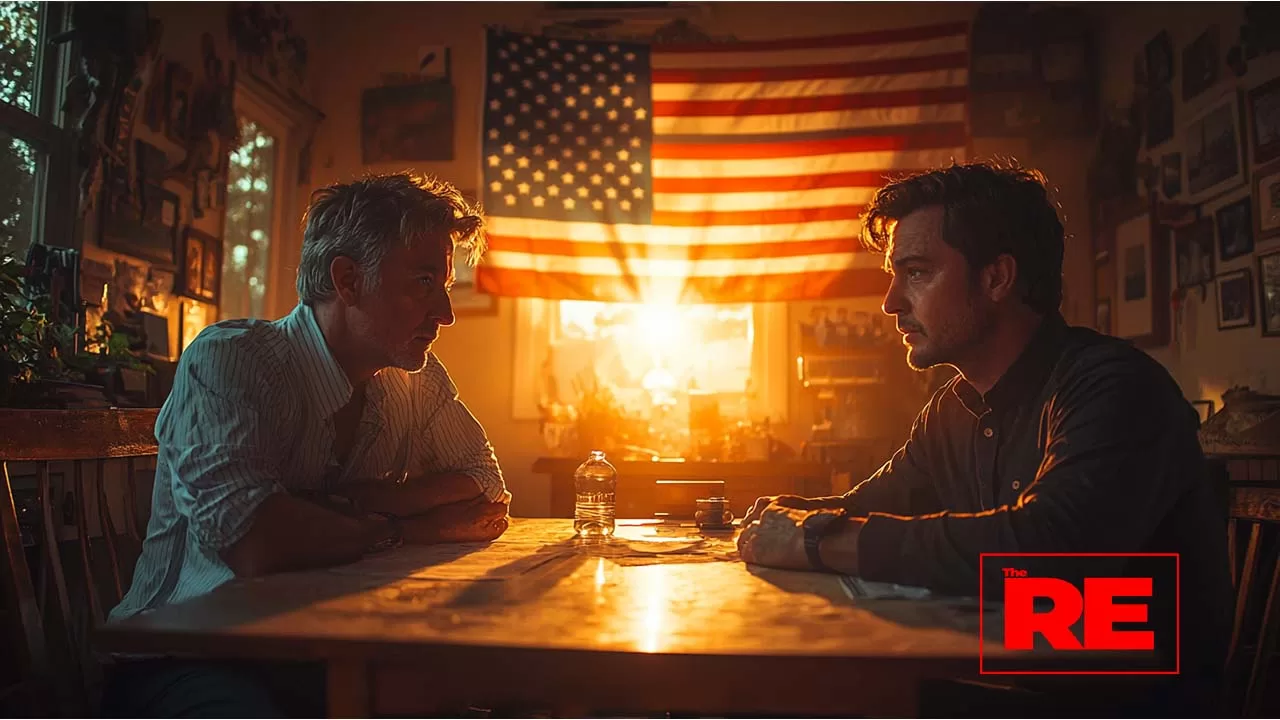
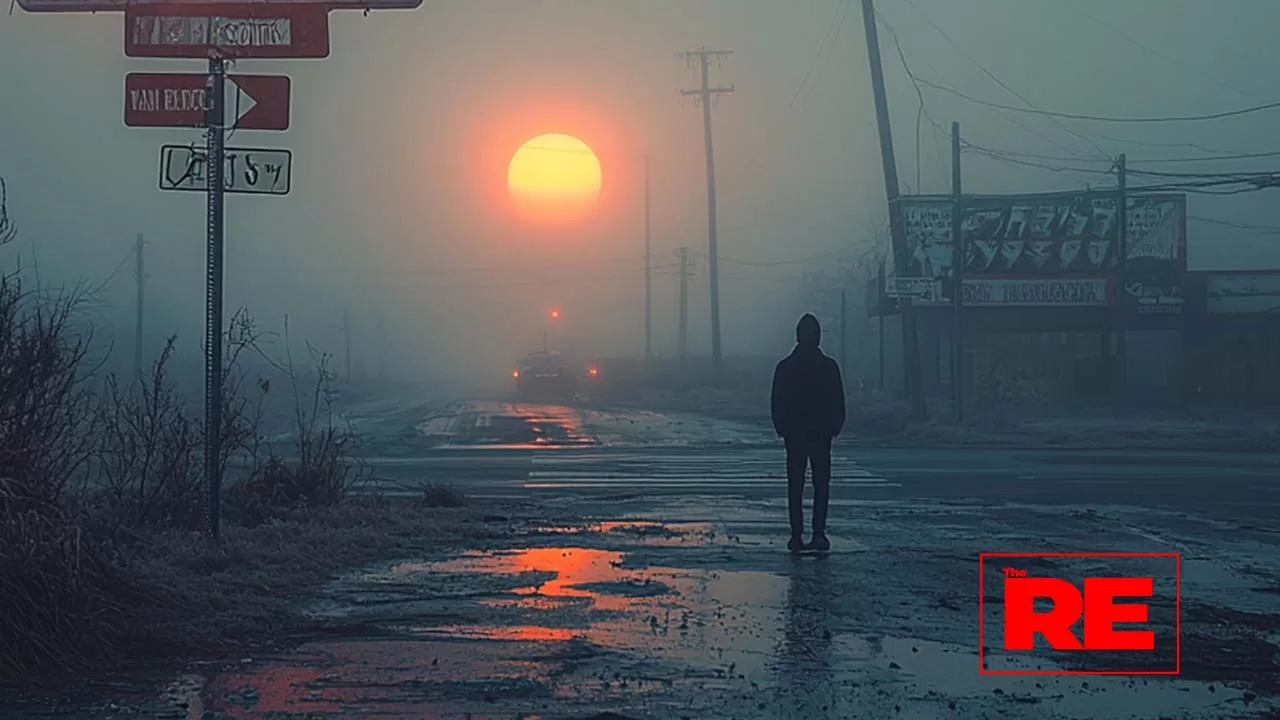
I’ve had Republicans tell me that being concerned about Trump’s character means I must be a radical leftist. And I’ve had liberals accuse me of enabling fascism because I dared to criticize their tactics. That’s the box we’ve built. You either fall in line or you’re thrown out of the conversation.
But here’s what most people forget: a whole lot of us live in the real world, not in political theory. We’re raising kids. Running businesses. Trying to afford groceries that somehow doubled in price in the last two years. We care more about how our communities feel than how our feeds look. We care about decency, stability, and long-term impact—not just today’s trending topic.
And yet, we’re ignored by both parties. Because we’re not loud enough. We’re not extreme enough. We’re not profitable enough to be pandered to.
You don’t see thoughtful people going viral. You don’t see nuance getting airtime. Because neither party, neither algorithm, makes money off people who say, “Actually… that’s complicated.”
But that doesn’t mean we’re not here.
We’re the ones who want reform, but not chaos. Accountability, but not vengeance. Progress, but not performance. We’re the ones who still believe in democracy—not because it’s perfect, but because it’s the best tool we have to keep imperfect people in check.
We understand the danger of polarization, not as a concept, but as a lived experience. We’ve lost friends. Split families. Been called traitors by people we used to break bread with. Not because we changed our values—but because we refused to conform to theirs.
And if I’m being honest? The middle is lonely.
You get attacked from both sides. Mocked for not being radical enough. Judged for not being loyal enough. But the middle is also where the grown folks live. It’s where hard conversations happen. It’s where you admit you don’t know everything, and that real solutions take compromise, not purity tests.
The truth is, I don’t need to be right all the time. I don’t need to have the last word. I just need leaders who aren’t lying to me, who aren’t trying to distract me with culture wars while they hand out tax breaks to billionaires or gut education in the background.
And if that sounds too “moderate” for some of y’all? Fine.
Call it what you want.
But I’m not moving.
Because I’m not in the middle to be safe.
I’m in the middle to see clearly.
And from where I’m standing?
It’s not left vs. right.
It’s truth vs. propaganda.
It’s people vs. power.
It’s survival vs. spin.
And the sooner we stop letting parties define what’s worth fighting for, the sooner we’ll remember that this country was never meant to be won.
It was meant to be shared.
So where does that leave us?
It leaves us in a country where most people are more loyal to their party than to the truth. Where disagreement is seen as betrayal, and nuance is treated like weakness. Where winning isn’t enough—you have to humiliate the other side while you’re at it.
And the longer we live like this, the more ungovernable we become. Because there’s no system—no democracy, no movement, no institution—that can survive when the people inside it stop believing anyone outside their bubble is worth listening to.
We keep saying things like “America is better than this,” but is it?
We lock up people for petty crimes while billionaires rewrite tax codes. We demand perfection from struggling workers while giving scandal-plagued leaders second, third, fourth chances. We say we value truth, but most of us don’t even read past a headline. We’re addicted to certainty, allergic to humility, and damn near incapable of sitting with a thought long enough to actually understand it.
But here’s what I believe—here’s what I know: the country isn’t just broken because of who’s in office. It’s broken because we forgot how to be citizens. We outsourced our thinking to influencers and cable news hosts. We stopped doing the hard work of asking better questions. We stopped expecting more—not just from leaders, but from ourselves.
If you want a better country, it starts with that.
It starts with rejecting moral shortcuts. With asking why you believe what you believe. With calling out your own side when it’s wrong, not just the other one. It starts with refusing to be manipulated by fear. With refusing to let politicians sell you enemies to keep your attention off the systems they refuse to fix.
It starts by remembering that leadership isn’t about who yells loudest—it’s about who holds the most weight with the least ego.
And no, this isn’t about unity. I’m not naive.
We’re not all going to get along.
We’re not all going to agree.
We shouldn’t.
But disagreement doesn’t have to mean dehumanization. We don’t have to treat politics like warfare. We don’t have to write off half the country like they don’t count. Because once we do that—once we believe that compromise is cowardice and that only our version of America is valid—then democracy is already dead. We just haven’t signed the papers yet.
So what comes next?
I don’t have a clean answer. But I know this much: I’ll keep standing where I’m standing—outside the extremes, eyes open, heart intact. I’ll keep calling out hypocrisy no matter what party it wears. I’ll keep telling the truth, even when it’s inconvenient. Even when it gets me labeled, dismissed, or unfollowed.
Because at the end of the day, I don’t need to win an argument.
I just need to look my kids in the eye and say, I didn’t lie to you.
I didn’t follow the crowd.
I didn’t worship false idols.
I didn’t stop thinking.
I stayed human.
And maybe—just maybe—that’s the most radical thing you can do in America right now.
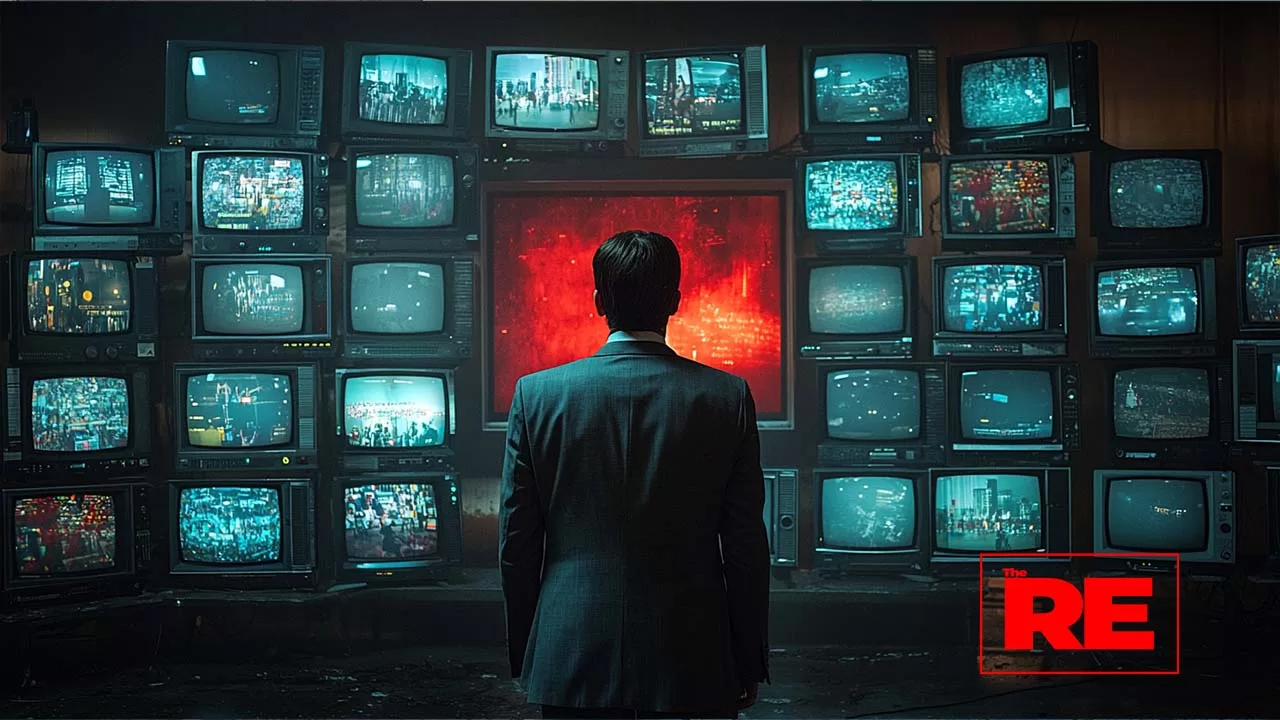
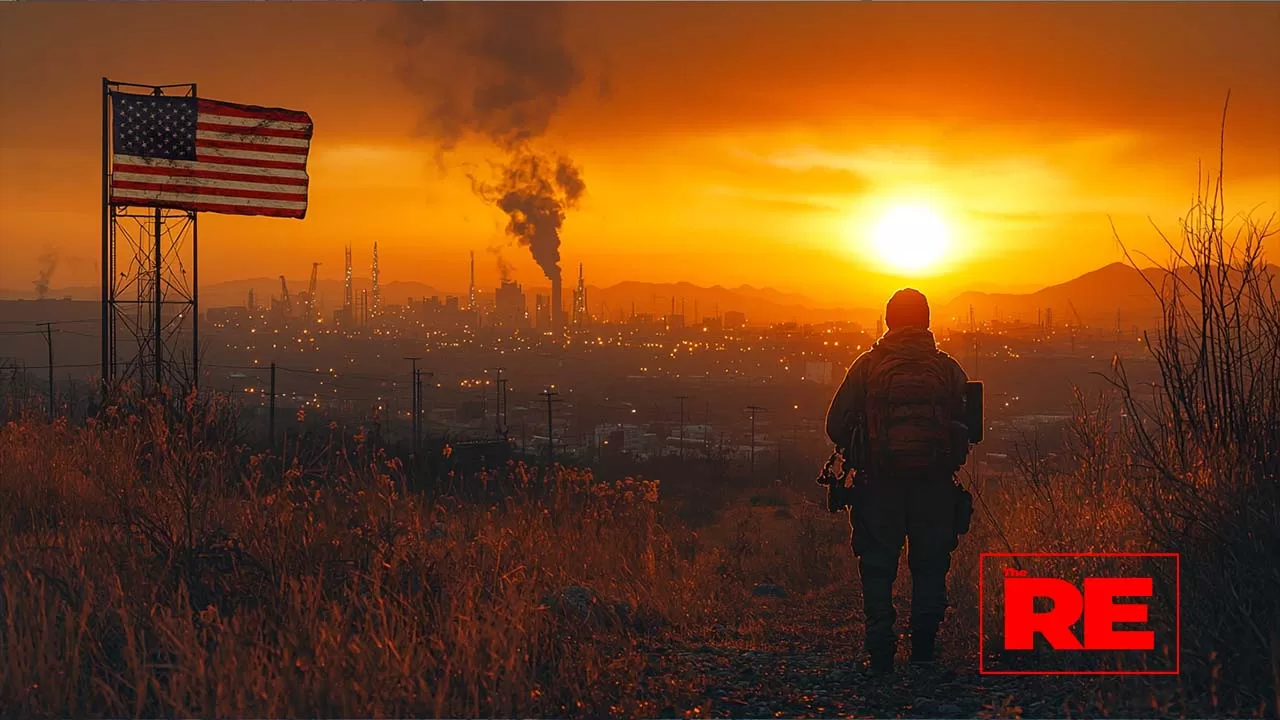

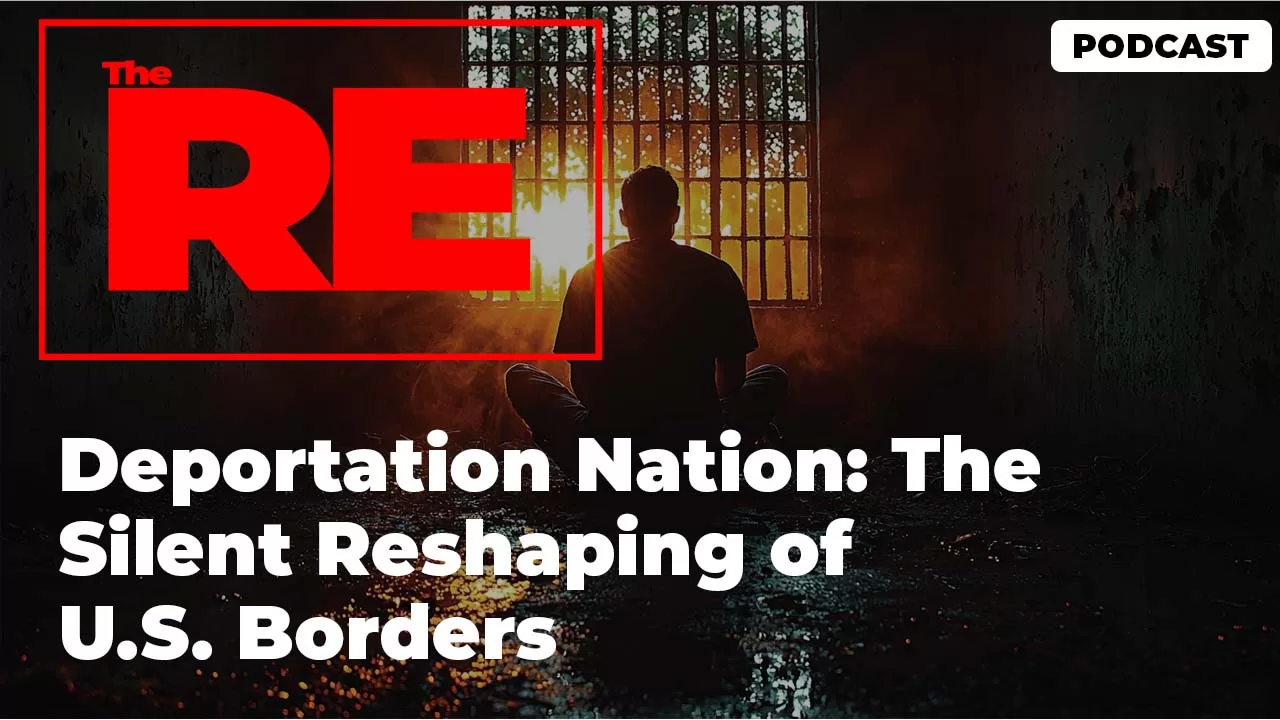
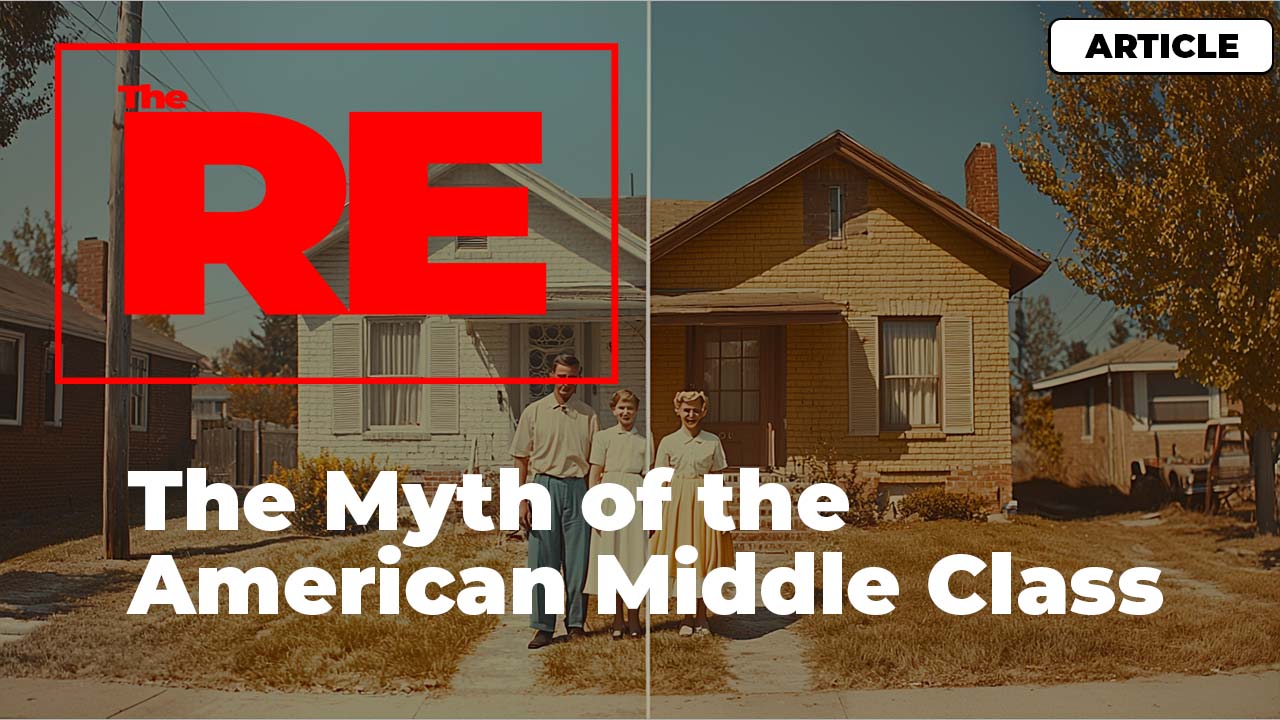
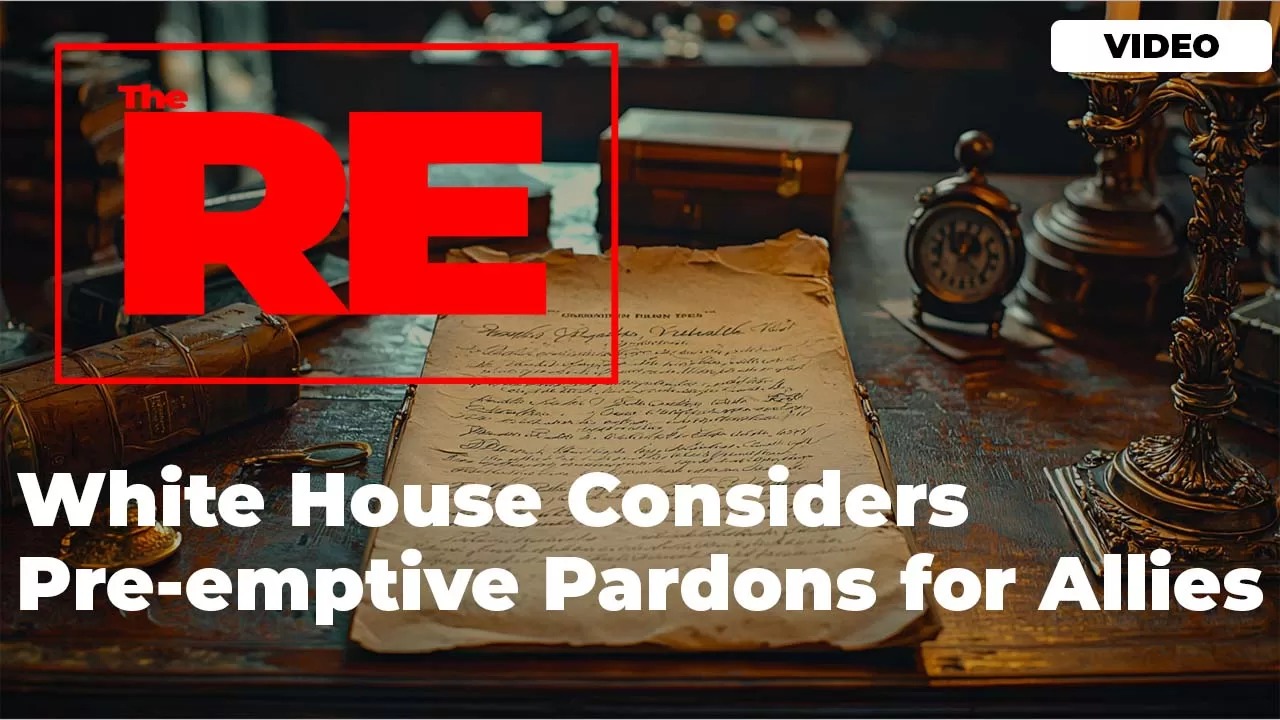

 and then
and then